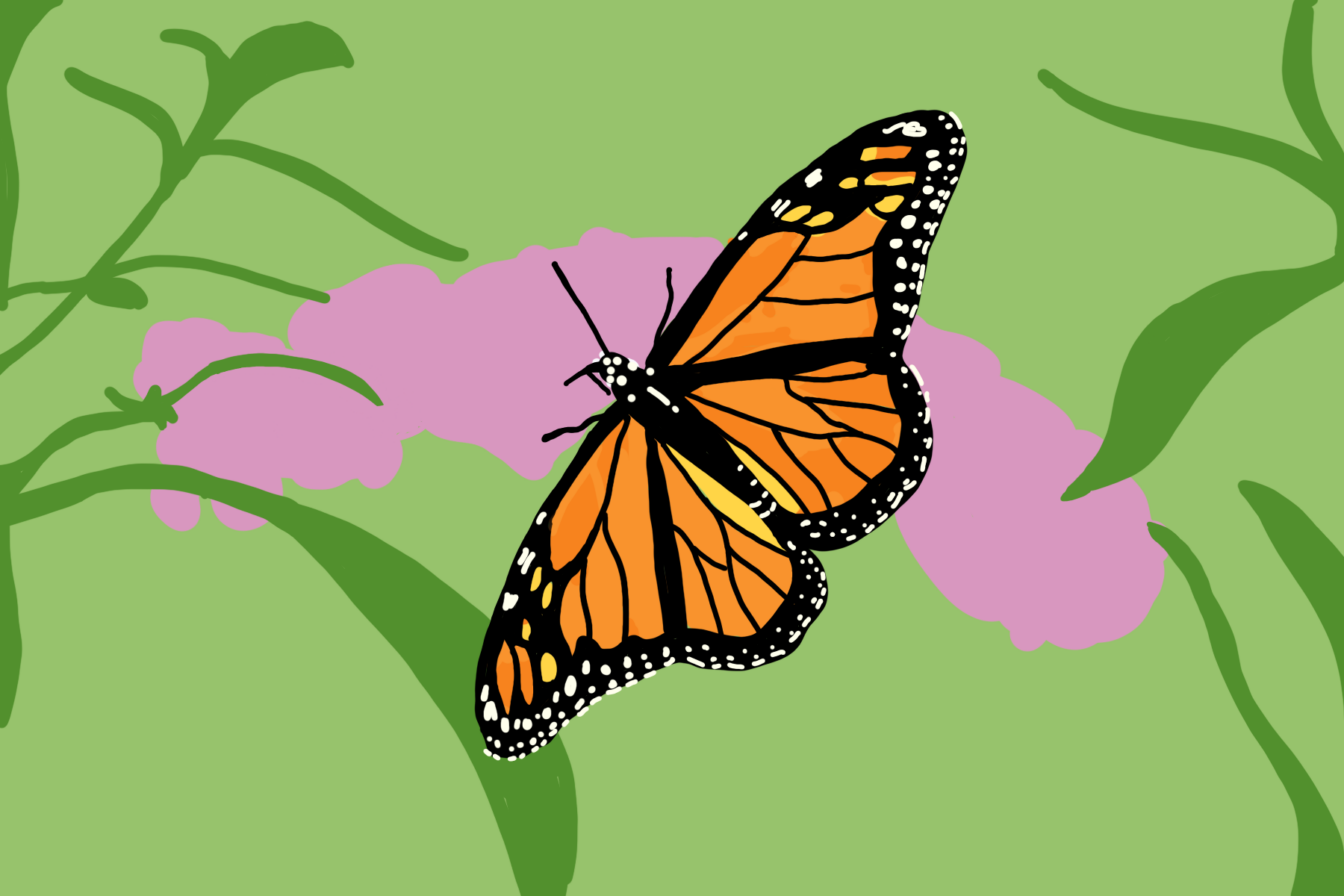A recent push from Wisconsin’s state lawmakers introduced a bill to make monarchs the state butterfly. University of Wisconsin Arboretum Director Karen Oberhauser said seven states in the United States already have monarchs as their state butterflies, and that it’s great positive awareness for this declining species.
Oberhauser has dedicated much of her career to studying monarch butterflies. Data from a recent study she participated in show a decline in monarch butterfly numbers. Oberhauser said 30 years of reliable population data support this species’ trending decline.
From this research, Oberhauser said one leading factor in the decline of monarch butterflies is the loss of breeding habitat. Monarch habitats contain milkweed hosts for the caterpillars and nectar plants for the adult butterflies to reproduce, and there are limited available environments for monarch reproduction. Declining breeding grounds have contributed to the decline of monarch butterflies over the past 20 years.
Ecology research to improve monarch habitat restoration was one of UW Entomology Ph.D. graduate and current coordinator of the Wisconsin Monarch Collaborative Skye Bruce’s main projects in graduate school. Grasslands with milkweed among other nectar sources are essential for monarchs, Bruce said. In the spring and summer, Wisconsin becomes a major breeding ground for monarch butterflies.
There are four main approaches for monarch conservation — increasing habitat availability with milkweed and nectar plants, participating in collecting data about monarchs, supporting related land conservation organizations and spreading awareness, Oberhauser said.
“Monarchs are a ubiquitous species, which is one reason they make for a great flagship species for conservation,” Bruce said.
Monarch populations are in decline in the long term, Bruce said. There are steady counts of monarchs in certain geographic areas compared to others, but the eastern population, which passes through Wisconsin, is in evident decline.
A primary influence of the decreasing eastern population is the loss of milkweed from the landscape. Each state has goals to plant a certain amount of milkweed stems in order to promote monarch conservation, Bruce said. For Wisconsin’s milkweed goals and monarch conservation, all state-wide groups can communicate, thanks to the Wisconsin Monarch Collaborative.
Changing weather conditions are also contributing to monarch declines. Oberhauser said extreme conditions, due to human-caused climate change, are contributing to the current and projected decline of the species.
“In order to help the monarchs and all organisms, including humans, mitigating climate should be at the top of all of our lists,” Oberhauser said.
The Larva Monitoring Program and Journey North are monarch monitoring projects community members can participate in to help collect data and inform overall monarch conservation, Oberhauser said.
As coordinator of the WMC, Bruce oversees all organizations involved with monarch habitat restoration. The WMC was formed in 2017 and curates collaboration between researchers, land managers, nonprofits and interested citizens, according to the website.
With this wide range of groups, the WMC’s goal is to educate people across Wisconsin about the monarch’s importance and their pollinator habitat. Bruce said she became the coordinator of WMC at the beginning of October.
“All different stakeholders from Wisconsin come together to bolster the great cause of promoting conservation for monarchs in Wisconsin,” Bruce said.
The individuals involved in the WMC are completely voluntary and have professional careers outside of work done for the collaborative, Bruce said.
Transition to clean energy requires changes on systemic, individual levels
The WMC will start releasing monthly newsletters aimed at building relationships with the monarchs, which depends on the community member, Bruce said. There are many involvement methods even outside of the WMC’s volunteering, and the WMC celebrates all forms of connection to monarchs.
The bill to establish the monarch as Wisconsin’s state butterfly is a positive representation of the species itself and for all insects, Bruce said. Insects are cornerstone animals in all ecosystems, but their vital role in the environment may be easily forgettable.
“Monarchs do not have an official U.S. Fish and Wildlife classification yet, so they are not listed underneath the Endangered Species Act as ‘endangered,’ and they are not protected,” Bruce said.
Monarchs are in danger and of concern, but there’s a limit of urgent or emergent classifications from the Endangered Species Act. As a result, other species take priority over monarchs at this point in time, Bruce said.
Oberhauser said it’s important to get Wisconsin communities interested and involved, even if it’s not participating in data collection for research. Monarchs are a symbol and the WMC encompasses the influence overlap in a functioning ecosystem, Bruce said.
“Planting milkweed wherever and whenever possible is a fantastic way to promote and support this well-known and loved species,” Bruce said.


















